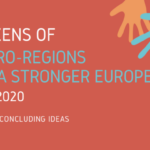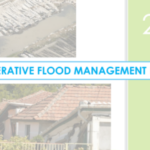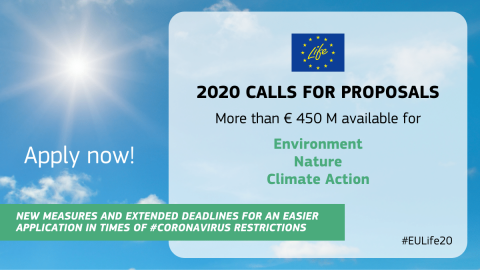The European Commission has launched its 2020 call for project proposals under the LIFE programme. We have taken measures to make it easier for you to apply in times of coronavirus restrictions including extended deadlines.
This year, we have earmarked more than €450 million for nature conservation, environmental protection and climate action projects.
What types of projects do we fund?
LIFE funds projects under its environment and climate action sub-programmes, thereby helping implement the European Green Deal.
Most LIFE projects are so-called traditional projects that can be coordinated by any legal entity registered in the EU. These include public institutions, businesses and non-governmental organisations (NGOs). A lot of traditional projects show best-practices, run pilots, raise public awareness or demonstrate breakthroughs in environmental practices.
Applications are also being accepted for bigger so-called integrated projects. These projects run strategic EU plans on the environment and the climate and tend to have a regional, multi-regional, national or trans-national dimension.
COVID-19 pandemic: new measures
“We understand that during these times of the COVID-19 pandemic, it will be a challenge for many applicants to participate in this year’s LIFE call for proposals. That is why we have taken a number of measures to make it easier for you to apply,” explains Angelo Salsi, who is head of the LIFE unit at EASME.
“I encourage all applicants – businesses, both big and small, institutions and NGOs – to look at their project idea and identify any element that could potentially improve our collective ability to avoid or to deal with a similar future crisis. There are undoubtedly strong links between our environment and climate, and human health that we should explore.”
New measures that the European Commission has already introduced to lessen the impact of restrictions due to the coronavirus pandemic include:
- All submission deadlines are being extended by one month.
- Private entities are no longer obliged to launch open tenders for contracts above 135 000 euros.
- Projects can financially support small, local initiatives.
- A special section on start-up companies has been integrated into the guidelines.
Additional measures are currently being considered. Read the LIFE programme’s measures relating to the COVID-19 pandemic and visit our website regularly to stay up-to-date.
How to apply
Applying for traditional projects with a climate change focus involves submitting a full proposal by October 2020. This includes proposals for climate change mitigation and adaptation projects as well as climate governance and information initiatives.
For traditional projects that address environmental and nature themes, there is a two-stage application process: candidates first outline their idea in a concept note by July 2020. If your concept note is shortlisted, you will then have until February 2021 to submit a full project proposal. The two-stage process covers nature conservation and biodiversity, environment and resource efficiency, as well as environmental governance and information projects.
Applications for integrated projects also follow a two-stage process.
You can find more information on how to apply on the 2020 LIFE call for proposals page.




